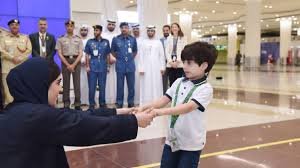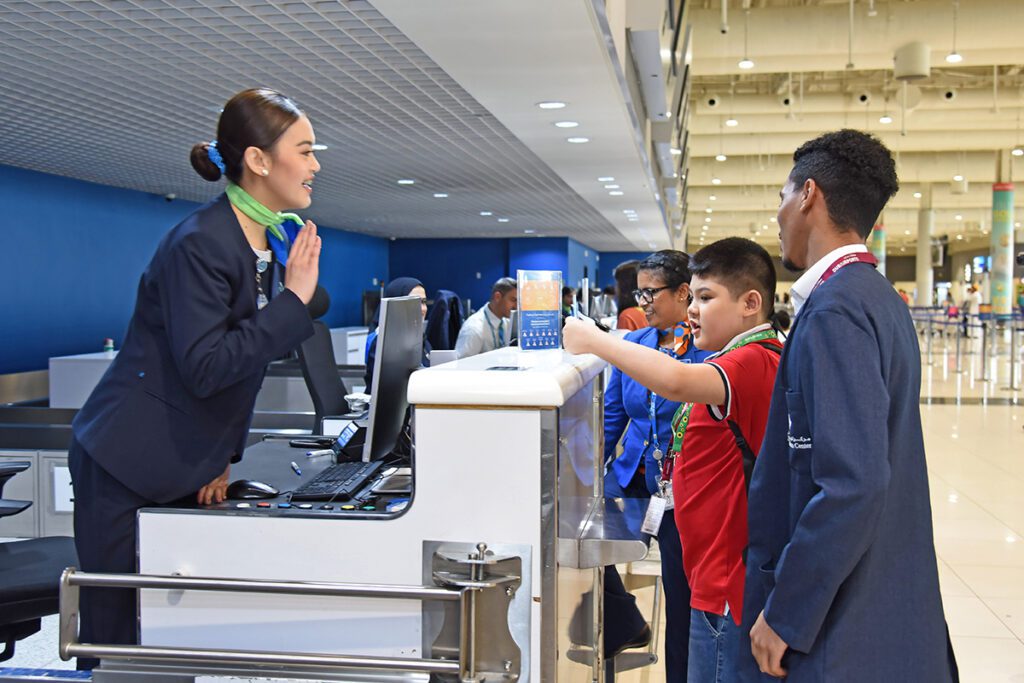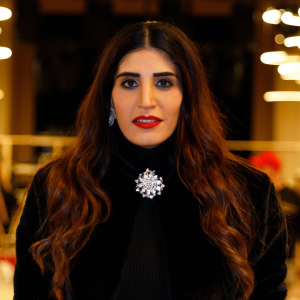Dubai, a city globally admired for its innovation, inclusivity, and world-class infrastructure, is taking another giant leap—this time in creating a more supportive and sensory-friendly travel experience for autistic and neurodiverse travelers. Dubai Airports has announced a major expansion of its autism-inclusive training program, now equipping over 45,000 staff at both Dubai International (DXB) and Dubai World Central (DWC) with the skills and empathy necessary to accommodate autistic passengers with care and confidence.
This landmark initiative reinforces Dubai’s broader vision of becoming a Certified Autism Destination™ (CAD) and positions its airports among the most inclusive travel hubs in the world.
A Commitment to True Inclusion
At the heart of this effort lies a powerful belief: true inclusion begins with people. Majed Al Joker, Chief Operating Officer at Dubai Airports, summed it up best when he said, “True inclusion starts with people. By investing and increasing specialist training by 36% year-on-year, we are embedding a culture of understanding and proactive support across our airports.”

Dubai Airports, in collaboration with the International Board of Credentialing and Continuing Education Standards (IBCCES), has crafted an accredited training program that focuses on sensory awareness, effective communication, emotional regulation, and anxiety reduction—core pillars in making airports more accessible to autistic and sensory-sensitive travelers.
This training is not just limited to airport staff alone. The wide network of involved entities includes Dubai Police, the General Directorate of Residency and Foreigners Affairs, Dubai Customs, dnata, Dubai Duty Free, Dubai Corporation for Ambulance Services, Dubai Taxi Company, Emirates, flydubai, and concessionaires at DXB and DWC. This multi-agency involvement ensures that every touchpoint along the passenger journey, from arrival to departure, is infused with understanding and care.


A Symbol of Support: The Hidden Disabilities Sunflower
To further elevate support, Dubai Airports has also adopted the globally recognized Hidden Disabilities Sunflower program. The initiative provides travelers with a discreet and dignified way to signal that they may require extra help, time, or understanding. Guests wearing the Sunflower lanyard, pin, or wristband are easily identified by trained personnel who have been educated to offer appropriate and respectful support.
Throughout DXB and DWC, specially trained Guest Experience Ambassadors wear Sunflower pins, standing ready to assist individuals and families with hidden disabilities, including autism. These ambassadors are trained not just in logistical support but in emotional intelligence and compassionate communication.
During Autism Acceptance Month, Dubai takes its efforts a step further by lighting up Smart Gates in blue across the airport terminals, a symbolic gesture of solidarity with the autism community. The terminals are also adorned with Sunflower visuals to further raise awareness among travelers and staff alike.
Services Beyond Training: Designing a Sensory-Inclusive Journey
The expansion of staff training is only one part of Dubai Airports’ autism-inclusive strategy. A host of specialized services and facilities have been rolled out, specifically designed to reduce sensory overload and offer greater predictability and comfort for travelers on the spectrum.
1. DXB Travel Planner
This online visual guide allows autistic individuals and their caregivers to explore every stage of their airport journey before arriving. From check-in to boarding, it provides images, descriptions, and helpful tips that help prepare travelers for what to expect, significantly reducing anxiety and uncertainty.
2. Sunflower Lanyard Priority Access
Travelers wearing the Hidden Disabilities Sunflower lanyard are granted access to priority lanes and autism-friendly routes. This fast-tracked process helps mitigate sensory challenges commonly triggered by long queues, crowded spaces, or sudden changes.
3. Assisted Travel Lounge
Located in Terminal 2, the Assisted Travel Lounge is a sensory-friendly oasis. Designed to provide a calm and quiet space for travelers who may feel overwhelmed, the lounge features soothing lighting, comfortable seating, and minimal visual stimuli. This area allows travelers and their families to recharge and regroup before continuing their journey.
4. Additional Accessibility Features
Dubai Airports also provides complimentary two-hour parking for those picking up or dropping off travelers with hidden disabilities. Dedicated accessible taxis and wheelchair assistance can be pre-booked to streamline the travel experience. Every element is designed to reduce stress and promote dignity, enabling travelers to feel more in control of their journey.
A Wider Vision: Toward Autism-Friendly Tourism
The initiative is part of a growing movement within Dubai to lead by example in accessibility and inclusivity. The city is aiming to become the first Certified Autism Destination™ in the Middle East. This distinction, awarded by IBCCES, recognizes destinations that offer comprehensive and ongoing training to public-facing staff, along with physical accommodations and services for autistic individuals.
It’s not just about compliance—it’s about compassion. Dubai’s leaders understand that inclusion is more than a buzzword; it’s a mindset that touches every sector from transport and tourism to retail and hospitality.
Dubai Airports’ commitment also echoes that of Emirates Airlines, which recently became the first airline in the world to be autism-certified by IBCCES. Emirates has rolled out similar training initiatives and tailored services for neurodiverse passengers, further strengthening the ecosystem of inclusive travel in the UAE.
A Global Benchmark in Accessible Travel
By reaching and training over 45,000 employees, Dubai Airports has not only set a new standard in accessibility but has also created a replicable model for airports around the globe. The scale and depth of this initiative demonstrate that inclusivity is not an add-on—it is a central tenet of customer experience in modern air travel.
The program’s growth reflects a broader recognition of the increasing number of neurodiverse travelers. According to global studies, 1 in 36 children is diagnosed with autism, and countless families with autistic members travel every year. The need for a welcoming, supportive travel experience has never been greater—and Dubai is delivering on that need with clarity and care.
Looking Ahead
As Dubai continues to grow as a global hub, its focus on empathy-driven infrastructure and staff training sets the tone for the future of travel. The airport’s autism training initiative is a profound example of how small changes in policy, awareness, and facility design can lead to big changes in people’s lives.
For families traveling with autistic children or adults, knowing they’ll be welcomed, understood, and supported at every stage of their journey is more than a convenience—it’s a relief, and in many cases, a reason to travel at all.
Do follow Uae stories for more Updates
Goa Tourism Targets Oman: Strengthening Middle East Ties Through Strategic Roadshow












